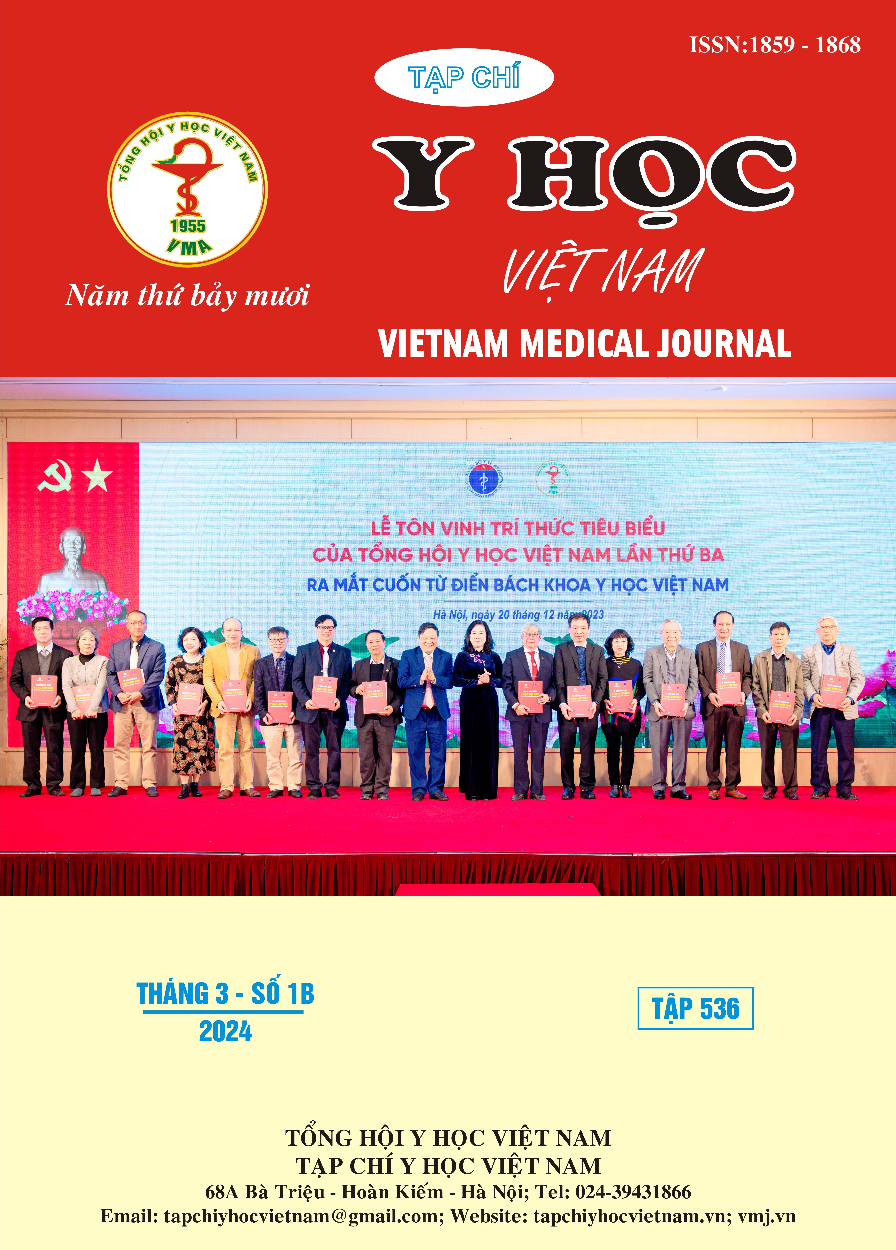EVALUATION OF THE TREATMENT RESULTS OF POSTOPERATIVE CHEMORADIOLOGY REGIMEN WITH TEMOLOZOMIDE IN HIGH-GRADE GLIOMA
Main Article Content
Abstract
Objectives: To evaluate clinical characteristics and response to chemotherapy and postoperative chemoradiology regimen with temolozomide in patients with high-grade glioma. Objects and methods: Retrospective and prospective cross-sectional descriptive study on 30 high-grade glioma patients receiving postoperative chemotherapy and radiotherapy at the Department of Physics and Radiotherapy - 103 Military Hospital from January 2020 until May 2023. Results: 70% of patients are men; The average age is 47.5 years old. The average time to receive adjuvant chemotherapy after surgery is 4.8 weeks. Symptoms after chemotherapy and radiotherapy are mainly headaches (60%), epileptic seizures (13.4%), and nausea and vomiting (16.7%). The average KPS score was 67 ± 11.2; Objective response assessment according to RECIST, 29 out of 30 patients achieved disease control rate (96.7%). Conclusion: Postoperative chemoradiotherapy regimen with temolozomide shows effective treatment for high-grade glioma. The rate of patients having their tumors controlled is high. Symptoms after chemotherapy and radiotherapy are at an acceptable level.
Article Details
References
2. Rasmussen BK, Hansen S, Laursen RJ, Kosteljanetz M, et al (2017). Epidemiology of glioma: clinical characteristics, symptoms, and predictors of glioma patients grade I-IV in the the Danish Neuro-Oncology Registry. Journal of Neuro-oncology, 135(3): 571-579.
3. Trần Thị Kim Tuyến (2022). Nghiên cứu đột biến gen IDH1/2 của u tế bào thần kinh đệm lan toả ở người trưởng thành. Luận văn Tiến sỹ y học, Đại học Y dược Thành phố Hồ Chí Minh.
4. Senft C, Bink A, Franz K, et al (2011). Intraoperative MRI guidance and extent of resection in glioma surgery: a randomised, controlled trial. Lancet Oncol, 12 (11), 997-1003.
5. Zhou X, Liao X, Zhang B, et al (2016). Recurrence patterns in patients with high-grade glioma following temozolomide-based chemoradiotherapy. Mol Clin Oncology.
6. Wang Q, Xiao F, Qi F, Song X, Yu Y (2020). Risk Factors for Cognitive Impairment in High-Grade Glioma Patients Treated with Postoperative Radiochemotherapy. Cancer Res Treat.
7. Antonio O, Kathryn B, Philip G, et al (2014). Phase II Study of Bevacizumab, Temozolomide and Hypofractionated Stereotactic Radiotherapy for Newly Diagnosed Glioblastoma. Clin Cancer Res, 20(19), 5023–5031.


